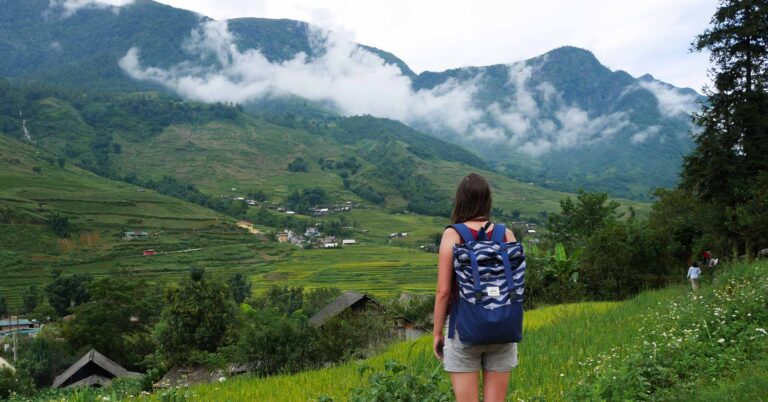
What is the most important thing about traveling? Marta's story
Meet Marta and her story.
What conclusions do the years of adventures experienced in travels around the world bring? How has her approach changed, what has remained the same?

All human beings are born free and equal in dignity and rights. They are endowed with reason and conscience and should act towards each other in a spirit of brotherhood.
(Article 1 of the Universal Declaration of Human Rights)
One of the things that I love in designing is the research that precedes each project. Suddenly, you discover completely new worlds, stories and facts that you did not know about before. You combine threads and inspirations like a detective, looking for a common denominator.
When the place for which you create, it turns out to be completely unique. They are made up of people of a completely different kind - people of mountains, nature and spirit. They have their own language, which they use among themselves, but only the oldest part of the people, who can remember the times before the escape from Burma, can use the script.
Do you know what you realise? How little you are aware of the world you live in. It's differences and how we still differ from each other. When you follow the latest news about the development of artificial intelligence and super fast tunnels, some do not separate the sacred from profane yet. They believe everything around me has a soul, and treat animals like brothers.
"The Earth is just a dead thing
But I know every rock and tree and creature
Has a life, has a spirit, has a name
You think the only people who are people
Are you people who look and think like you
But if you walk the footsteps of a stranger
You'll learn things you never knew, you never knew
At the other end of the barricade, however, we see people from the west who, carrying with them globalization and consumerism, lose these values, step by step.
In January last year, we set out on a great journey in search of experience, inspiring people and places that they create. For this reason, from the very beginning I knew that it would not be an ordinary crossing - I attach great importance to making everything we do be part of something bigger.
We do not want to be just travelers - observers. We want to act! Carry a good trail. Sharing, helping. Leave something more than memories and money.
This is how our adventure with the mountain people of Karen began.
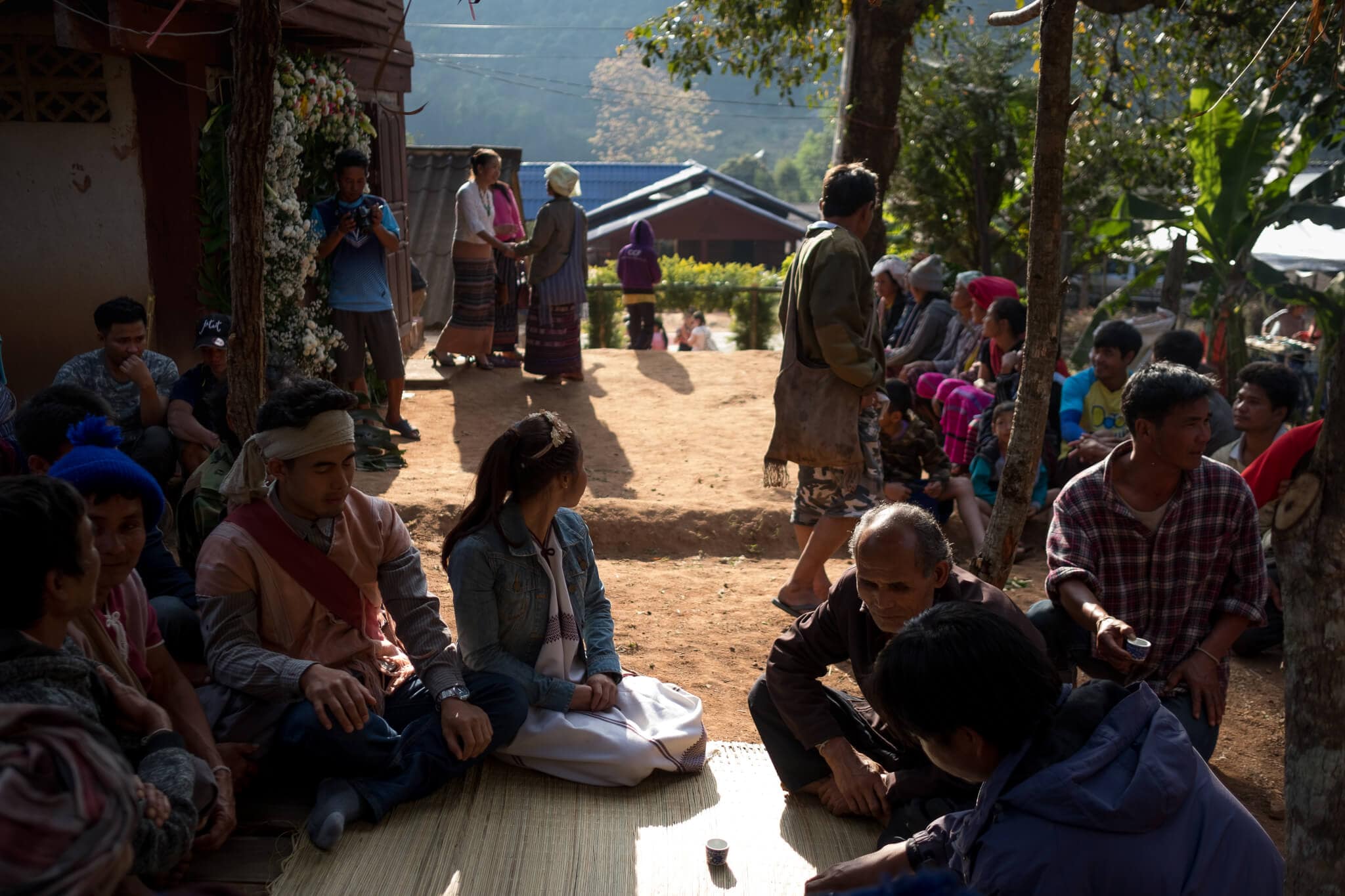
The first country on our way was Thailand. And although I knew stories about the not very ethical tourism of this country, I wanted to check one story on my own - Elephants. Or rather peoples who deal with these creatures.
One of my greatest passions are animals and their language. From childhood, the opportunity to communicate with other creatures was something wonderful for me. It introduced a piece of pure joy and love into the world.
Although the communication itself is by no means magical and is only based on solid knowledge or experience-based intuition ... it is something that puts us in awe! And I mean the clean, friendly relationship of man with the animal and their mutual play of pleas and courtesies. Conversation by trial and error.
However, I knew perfectly well the stories that spread about the Thai elephants on the Internet. About the brutal practices of "breaking" the spirit of young baby elephants to be obedient, submissive and able to work.
We wanted to be as careful as possible. However, a question grew in me - Do all elephants who work with people have to be treated like this?
Due to the fact that I have been close to horses for years, I know that natural communication with such large animals is possible.
I wanted to look for such a bond in the peoples of the Thai mountains dealing with these amazing animals.
With faith in people, I wanted to verify my doubts. Good communication requires only knowledge, sensitivity and experience. Knowing the realities of animal training, I wanted to see how the situation really looks like.
We've started Research
To understand the real problem, you have to delve into its genesis and history of the whole situation.
Elephants in Thailand have not always served tourism - it is even a new thing for them, which as a small snowball began to take place 30 years ago.
For thousands of years, elephants, just like our horses, have helped people in Asia in their daily work and transport. Initially, the number of elephants living in captivity was systematically falling, and their life and work remained very similar to those of old times.
But the breakthrough year of 1989 came.
Due to floods and land slip caused by felling of forests - which killed hundreds of people - the Thai government banned logging in natural forests, throwing away many elephants from legal work practically overnight.
We must realize the importance of this problem - most Thai elephants are privately owned. The costs associated with keeping these animals are huge. They also can not be simply released back into the wild - most of their natural habitat has already been degraded or adjacent to the arable land.
Fortunately (and unfortunately) for the owners of elephants and mahout (guardians and trainers of elephants), a rapid influx of people from around the world brought alternative employment in tourist camps.
Tourism has brought not only a solution, but also problems.
Wrong hands
Elephant prices have started to soar. Back in 1980, buying one pickup required money from the sale of two average elephants. In 2016, selling one elephant would have accumulated enough money to buy two pickups.
Baby elephants began to be very expensive when they once had little value, while males (once definitely the most expensive) lost their value unless they were very safe or very beautiful.
This rapid increase in value has supplanted many traditional owners and encouraged external entrepreneurs to invest. Corporations saw large amounts of money and began to buy centres and elephants for tourism.
Local owners, due to the lack of knowledge of foreign languages and the ability to manage this type of business, lost their profitability and were forced into slave labor for corporations. Otherwise, they sold elephants, giving away their lives to foreign hands.
Ipso facto the quality of care over these animals decreased due to the lack of knowledge of new investors - people without experience and knowledge started to be employed. The standards of care that the novices provided to their mentees were very diverse.
Elephants began to be transferred from a healthy rural environment to narrow districts, where epidemic diseases were easier to spread and had to live in horrible conditions. Providing proper nutrition was more difficult and more expensive. The conditions in which animals and people had to work - all day without a brake for food - were, and often are, so far, deplorable.
Some new owners rented elephants to independent keepers, often with catastrophic consequences. The loss of traditional jobs has caused a serious decline in the quality of mahouts. Once they had been trained since their childhood by their fathers, now without knowledge and experience, they were immediately employed in this very fragile and demanding profession.
Brutal methods are not practiced by the peoples of the mountains, which for centuries have lived with these animals as well as with their families. Whom once elephants, like our horses, helped at work.
The ancient, violent practice of breaking the spirit "Pha-Jaan" was ceremonial in these places and has not been practiced for a long time. Now the baby elephants stay with their mothers until they are weaned from three to four years of age. Then they are trained by small steps, all the time remaining near their mothers.
Like dogs and horses, elephants are very empathic and intelligent. They can learn commands through positive reinforcements, just as other people's pupils do.
Unfortunately, in times of increased demand for this type of attractions, few people are trained in basic knowledge about animal training in accordance with their natural understanding of the world and ways of learning. It istime-consuming, complicated, requires passion, understanding and patience. Such knowledge was passed laboriously and slowly through the generations of the Karen people's mahouts.
Since childhood, fathers taught their sons how to deal with these great animals. The training itself was an extremely time-consuming process. Once Mahout got his elephant, he stayed with him for the rest of his life. For years, nurturing mutual bond and perfecting communication.
Catching from the wild and the need to break
We can ask a question now: if a baby elephant can be taught in a natural way from a small age, why are others so cruelly violating them? Is this only due to lack of knowledge and cruelty?
In addition to lack of experience and heart (novices interested only in money), we come to the biggest problem that arose from this whole situation. Instead of using tame animals, which the peoples of the Thai mountains have been taking care of for generations, in the pursuit of money, people began to catch the remaining wild elephants living in the jungle on a huge scale (eg in Burma).
They are these wild elephants that are broken (so that anything can be done with them) by inexperienced people who want only to earn money on them.
Lack of experience and proper knowledge along with catching them from their natural environment is the biggest threat to their species. Pursuit of money and the need for quick results, gained at any cost.
Do not kid yourself, the same situation is in our world - for example among horses. The problem is that we do it in white gloves and effectively hide the cruel truth.
In many cases, their suffering does not last only for the period of breaking - but it lasts for years, when harnessed with all possible so-called "Patents" train every day in terror, bound up and clamped like smoked ham. They spend their lives in small boxes and the only "free" movement is provided to them by walking in a circle pushed by a metal carousel. Doesn't it sound cruel?
And at this point, I do not criticize the horse riding itself, because I consider it to be one of the most beautiful sports. If treated with heart and passion - it can be amazing learning of empathy and understanding. A challenge for us as a good leader, partner - and a field of intelligence for our intelligence and self-control.
Unfortunately, here too - few people are trained in basic knowledge about animal training in accordance with their natural understanding of the world and ways of learning. It is time-consuming, complicated, requires passion, understanding and patience.
Often, rich owners do not have time for it - then come impatience and frustration. The need for quick results - gained at any cost, without proper knowledge and experience.
We must realize that riding on an elephant is just the tip of the iceberg - even contact with this animal as a ward requires knowledge and patient training. To make these animals not being aggressive and could be looked after by a man - somehow they have to be taught it, tamed.
And this is not just for an attraction - it's about providing them with daily care (including veterinary care), the possibility of looking after them and feeding.
Keeping elephants in captivity, not teaching them safe contact with a human being, would be extremely irresponsible. They would not only be a threat to us - but also to themselves.
What's more, low-stress activities can be stimulating for them, not leaving them alone in an artificially constructed "zoo", without motivation, natural challenges and no way to use their mind. (Speaking of activities, I do not mean any circus tricks - which must often be preceded by sophisticated training - but natural activities such as walks or baths).
The problem is money, bad intentions and lack of knowledge. Investors who started to do it, simply do not have qualifications or do not care about animal welfare. They have no heart for them - it is only their source of income. They do not want to invest money in good mahouts and develop their knowledge in the field of proper training and care.
I strongly encourage you to watch the short document, which I attach below - which was created in cooperation with specialists in this field (specialists in elephants, veterinarians, researchers and conservators).
Each of them devoted his life to actively change the realities of elephant life in Thailand. In contrast to journalists looking only for controversial and emotional stories - they are really focused on finding the real and most importantly - a real solution to this problem.
We can promote visiting only those centers where you do not ride on elephants and where there are no hooks and chains. Those who describe themselves as "ethical."
It seems to us then that we solve the problem. By resigning from the tourist ride on elephants, we reduce the demand for this type of attraction, which stops being practiced. In theory, fewer elephants are cruelly tortured in inexperienced hands.
Unfortunately, such thinking is related to the mass of myths that have grown up in this topic. It's not riding and training what's a problem. They're the wrong people who handle it.
We forget that similar centers are still managed by corporations or private people who do it only for money. They can research the market. They see the problem.
They are able to adapt, make rebranding and announce themselves as ethical. However, they still control the market, employ the wrong people and can otherwise harm these animals by not providing adequate care and diet. And what's worse - they can still catch them from the wild and subject them to drastic breaking.
We do not see what's going on behind the scenes - as I said - riding on an elephant is just the tip of the iceberg - even associating with this animal as a ward requires knowledge and patient training. It does not matter if we teach them riding on the back or just being safe in contact with a human being.
When we decide to boycott elephant camps, we ignore the bigger problem. In addition to our own better state of mind, we do not win anything good for their fate.
You have to remember that tourism is basically the only legal form of work for elephants in Thailand - where most of them are privately owned. Only tourism can provide money for which the owners can take care of their animals.
Through industrialization, their natural environment has been largely degraded, so it is not possible to release them into the wild. Lack of land, poaching and conflict with a man make their species very vulnerable.
With all these problems, it is important to create the most humane environment in which they can live under protection. Thanks to true ethical tourism, owners can provide a stable income for the home for both elephants and mahouts.
And here a real solution emerges. In order to give this work to the right hands and not allow permanent capture of wild elephants, one must pay attention not to what the advertising slogans say, but real intentions.
Where are the elephants from? Does the center help a local population who knows how to deal with these animals with their heart and knowledge? Do they live with these animals for generations or save them, so they do not have to catch them anymore? What is the purpose of the center?
You need to ask WHY. Why is the center there, what is its local mission?
Let's not be tempted with emotional stories alone. Let's check what they are facts and myths.
These are the questions we should look for answers to find truly ethical places. Remember that not only animals can be treated unethically, but also people. If we do not make sure that the money earned by the center goes - we can also contribute to the tragic situation of the local people.
The ideal solution is to support local centers run by the local population - not large corporations. Help them to become independent of intermediaries and get enough money to create good living conditions for the elephants and a valuable diet.
Teaching them to manage business, clients, hospitality. Helping them grow so that people with heart and patience that have been passed down to them for generations - could do what they have been doing for ages. They really love these animals and want the best for them - if we want to change the situation of elephants - we must help them too.
With corporations in mind - I mean big business owners who only deal with this matter for money. I pay attention to this, because in addition to small local centers, there are also organizations that help in this matter and do a wonderful job, educating and engaging local people in high-quality tourism-related services. Ripping them out of poverty and slavery. Thus, giving elephants into loving and caring hands. E.g www.chailaiorchid.com or thinkelephants.org
The place we wanted to reach was one of the few that is still privately runs by the family for generations. For a time, they also rented their elephants, but thanks to easily accessible technologies, they decided to take matters into their own hands and run their own business.
Small sanctuary, hidden between big giants.
In the context of unethical tourism, trying to be different: by giving priority to social transformation over profit. Believing that it can change your environment, community and your whole life for the better.
Enthralled by the story of the family and the contribution to the local population ... I knew that we will direct our way there.
We knew that we want to learn more and we want to truly bring some value to this place. Help and give something from yourself. Knowing what we can offer, I started the stalking.
This is certainly a story changing a bit of a look at the world. And despite the fact that there is no shortage of twists and turns - it shows that it is worth investing in our most bold and crazy ideas! As far as they are from the depths of our heart 🙂
It's soon! Today, visit the website that we managed to create together: www.ethicalelephantkarentribe.com
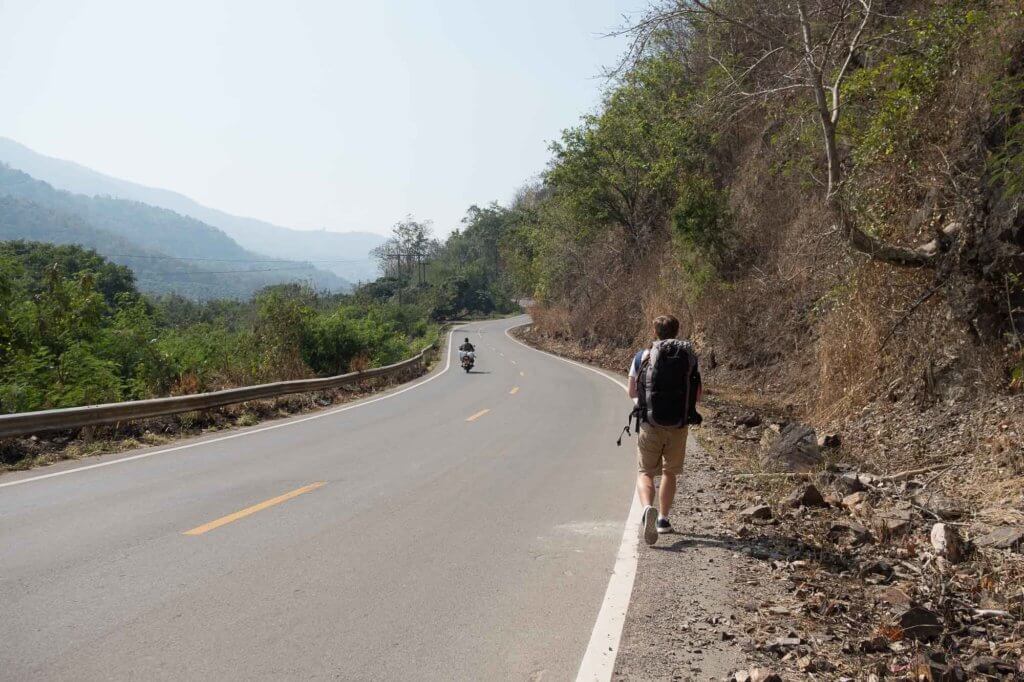

Meet Marta and her story.
What conclusions do the years of adventures experienced in travels around the world bring? How has her approach changed, what has remained the same?
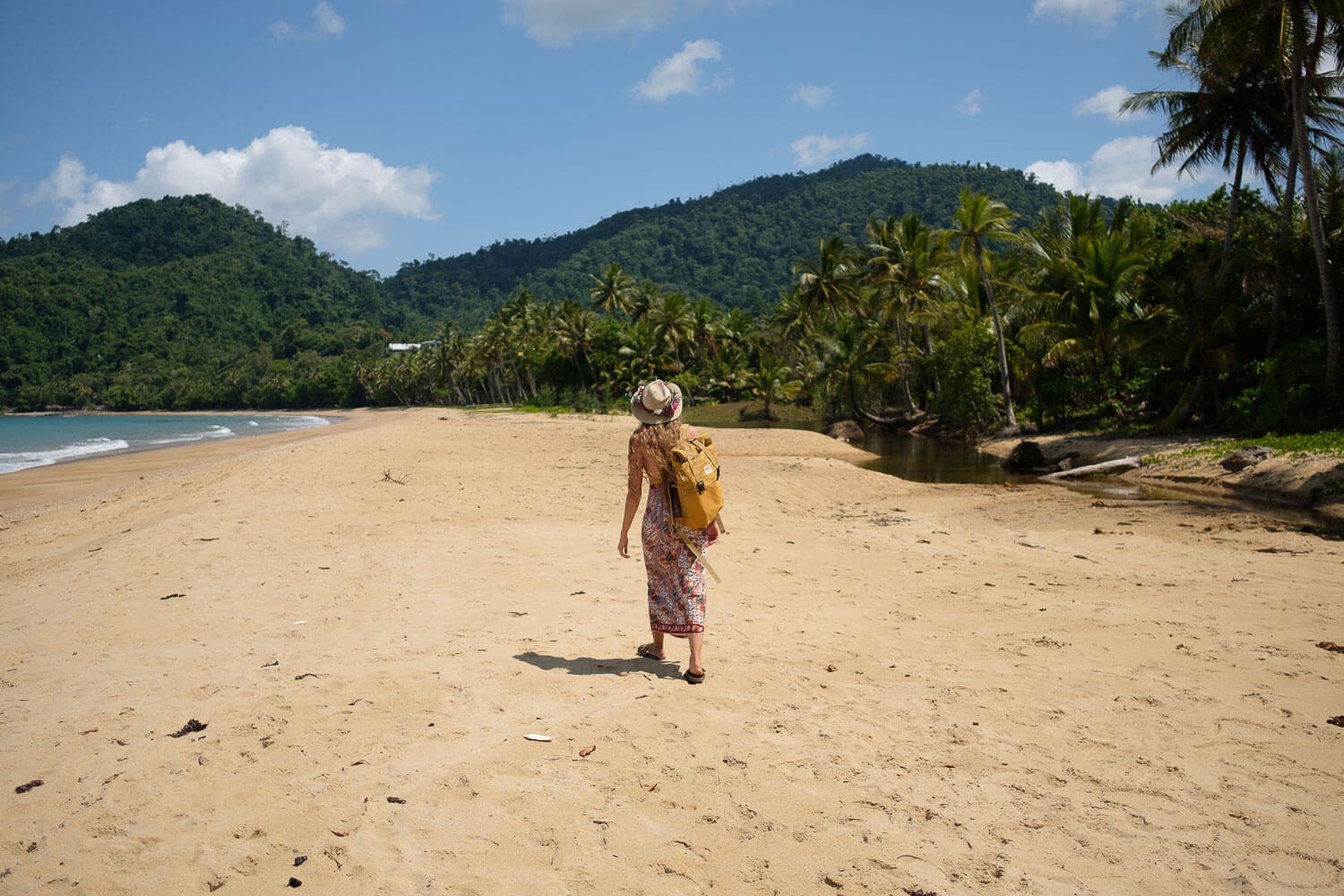
It is not without reason that our backpacks are our passion. Although we love Wrocław, we have long dreamed of embarking on the world and working remotely. What do travels teach us about designing and ... life?
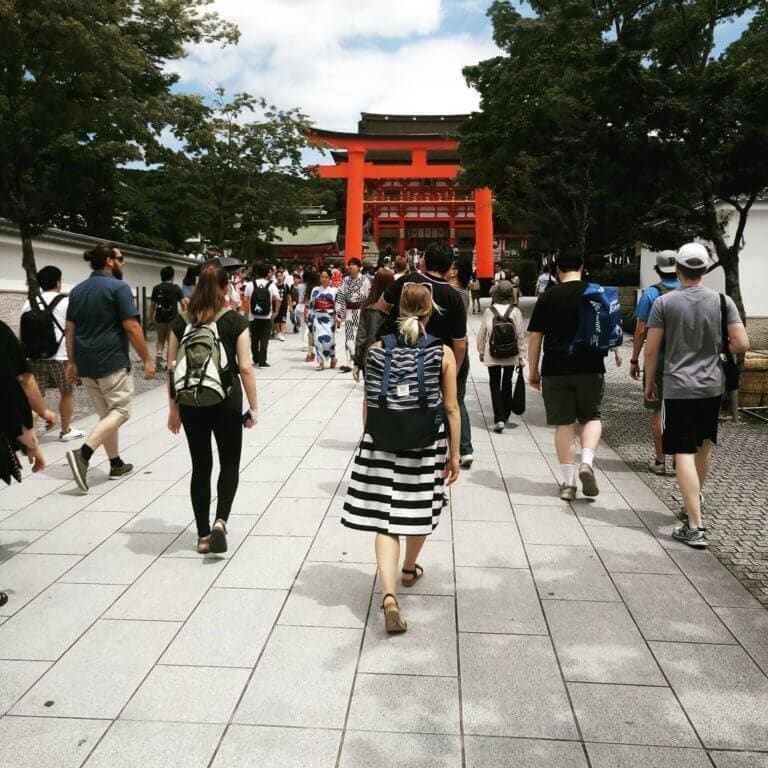
What stories can you meet when you decide to travel to the edge of the world to deepen your knowledge of the secrets of your passion? Read the story about traveling with our backpack in search of new masters!
If you want, we will inform you about the newest parts!